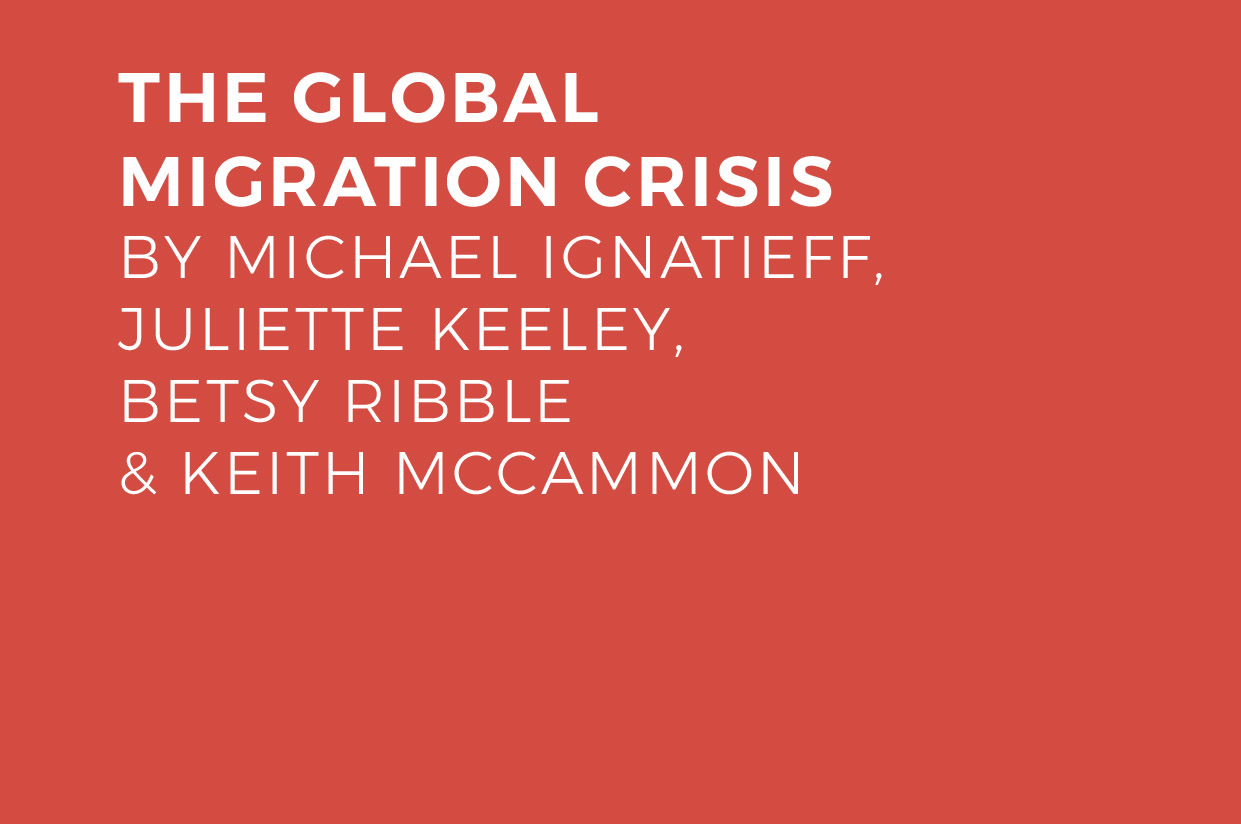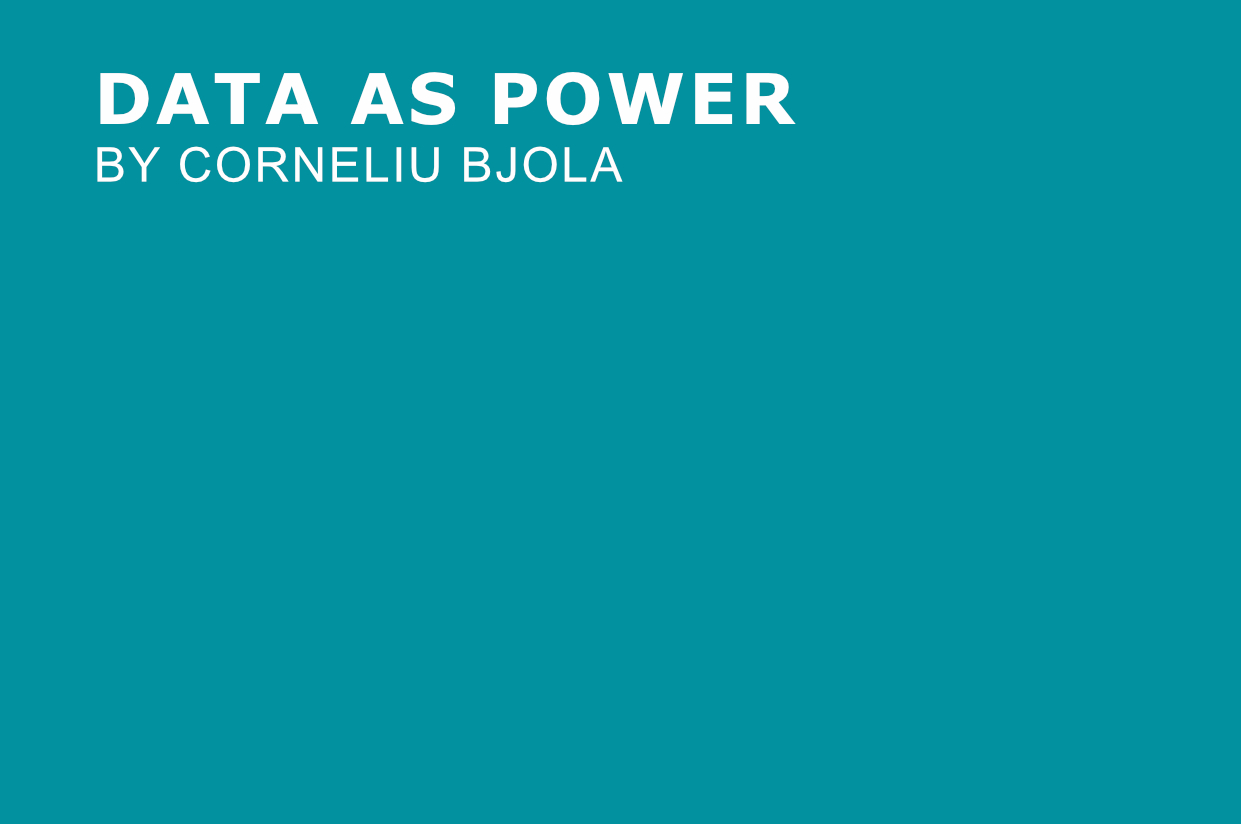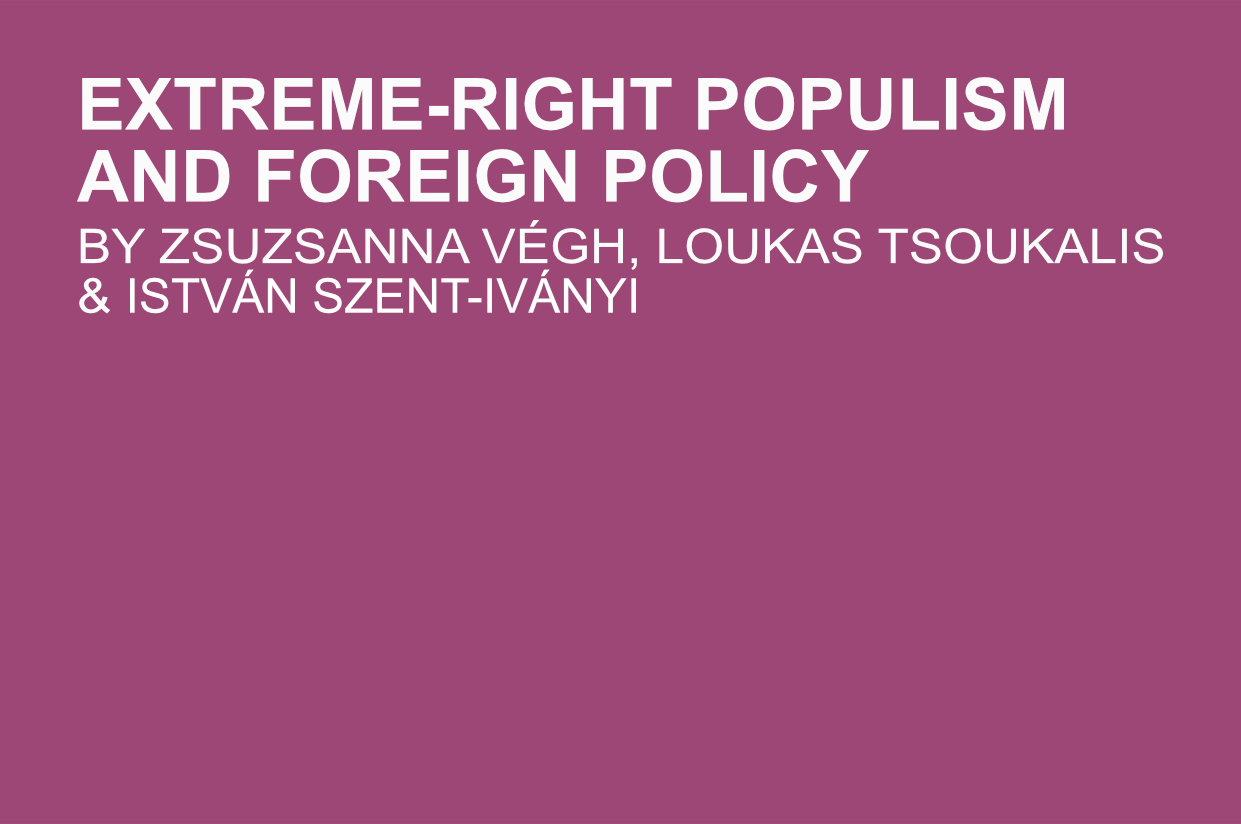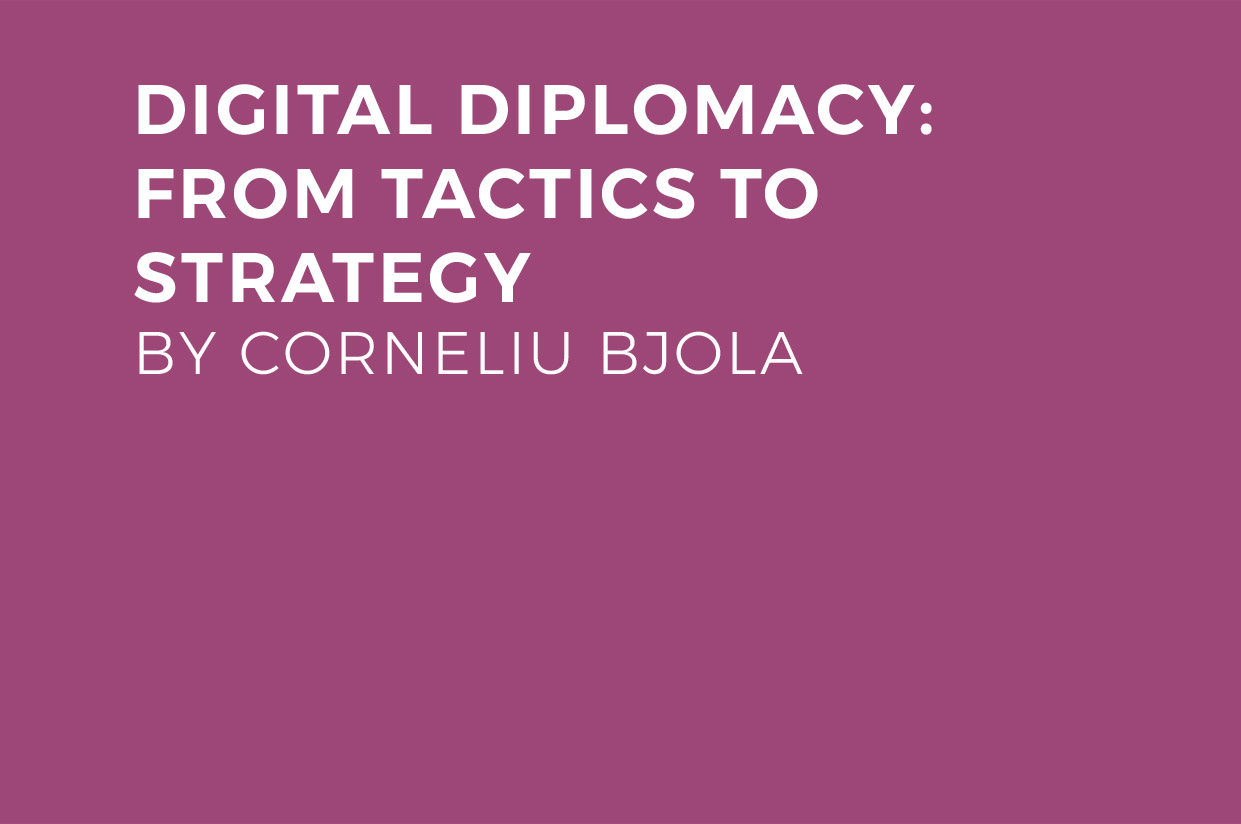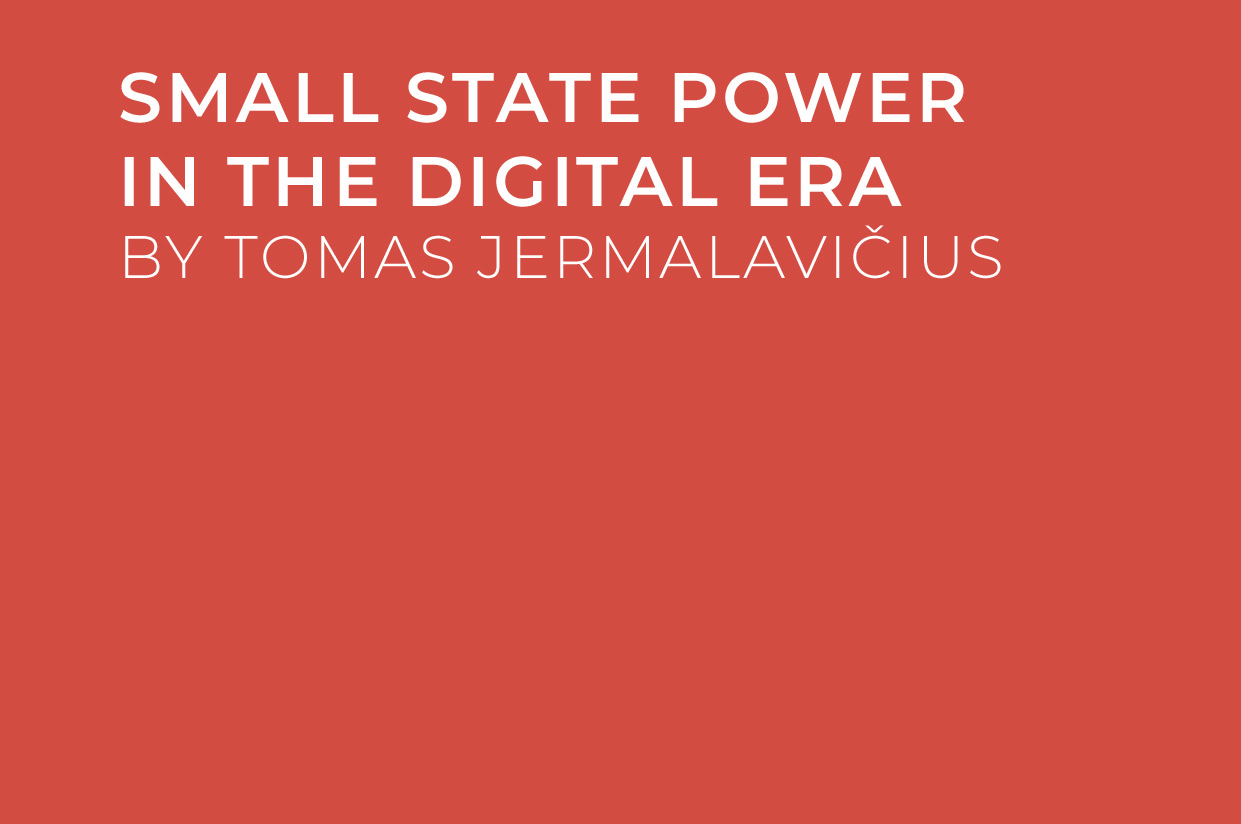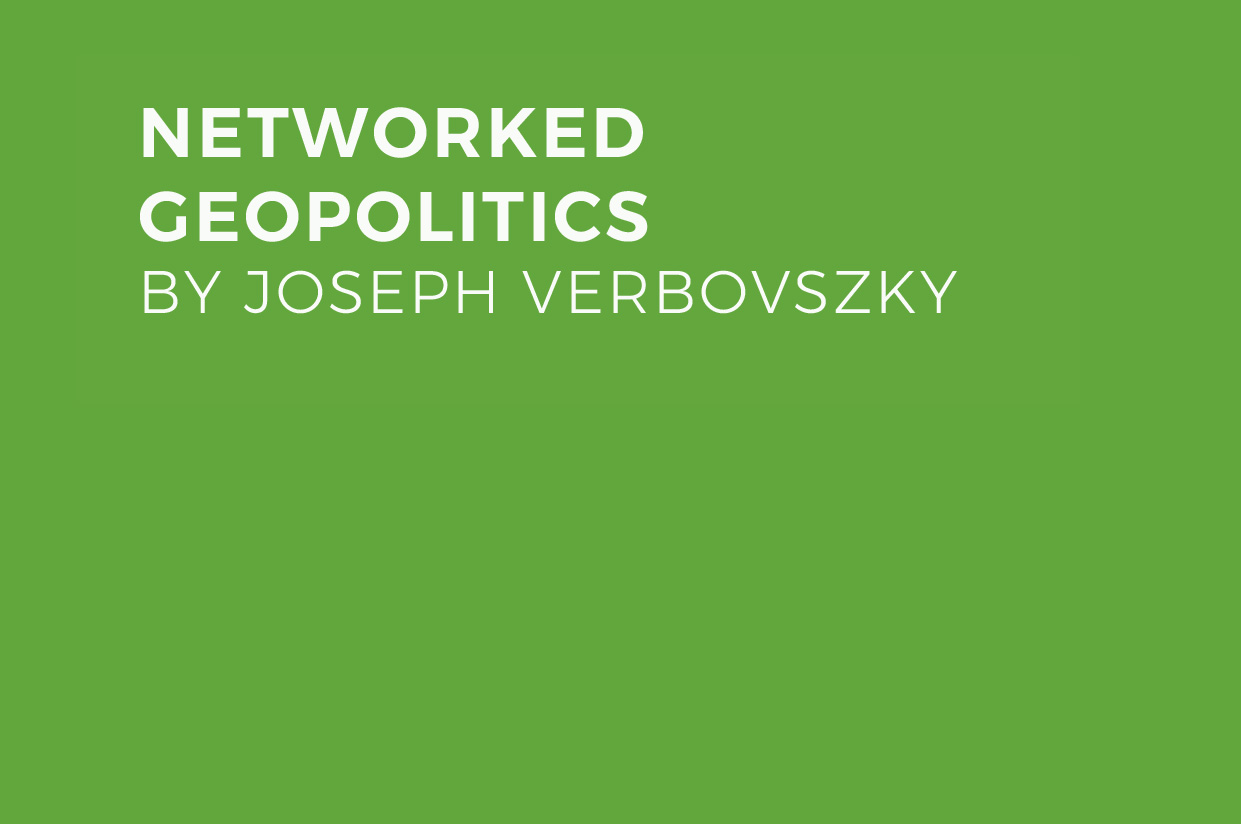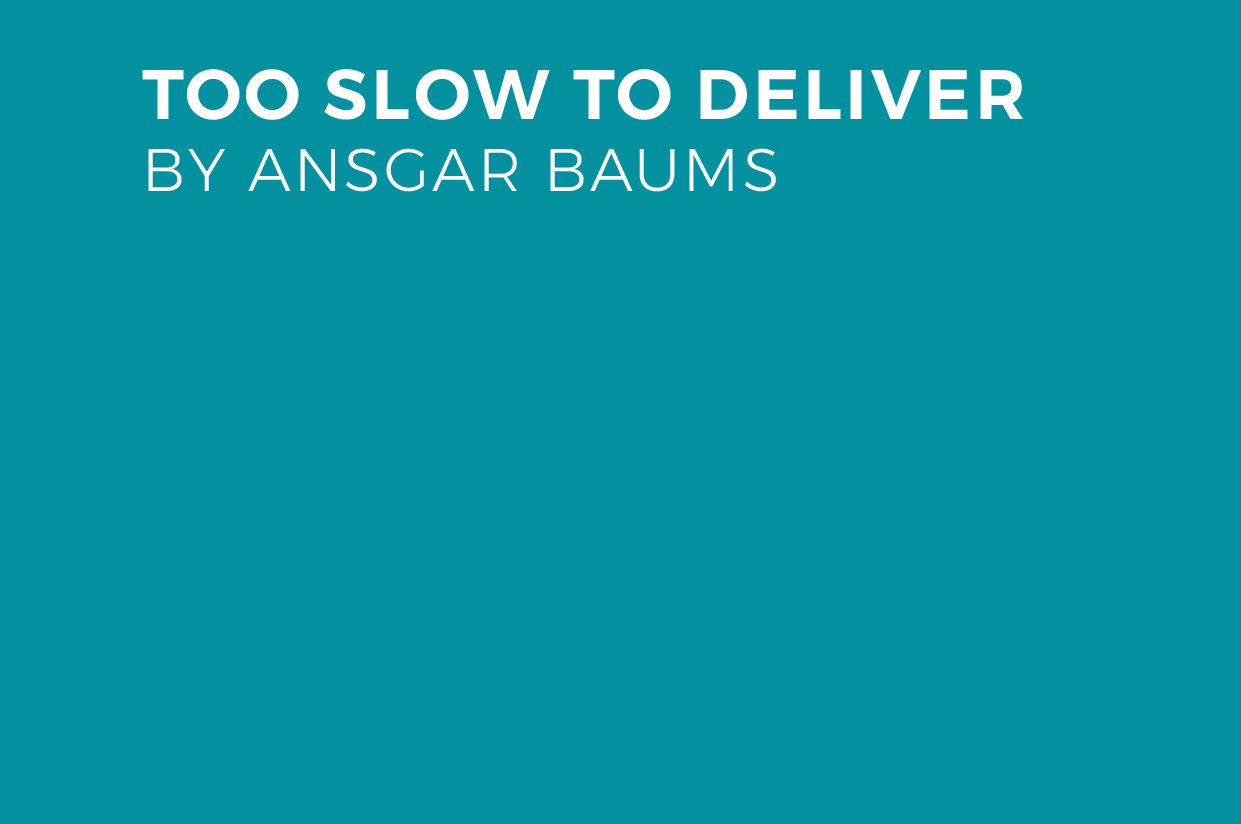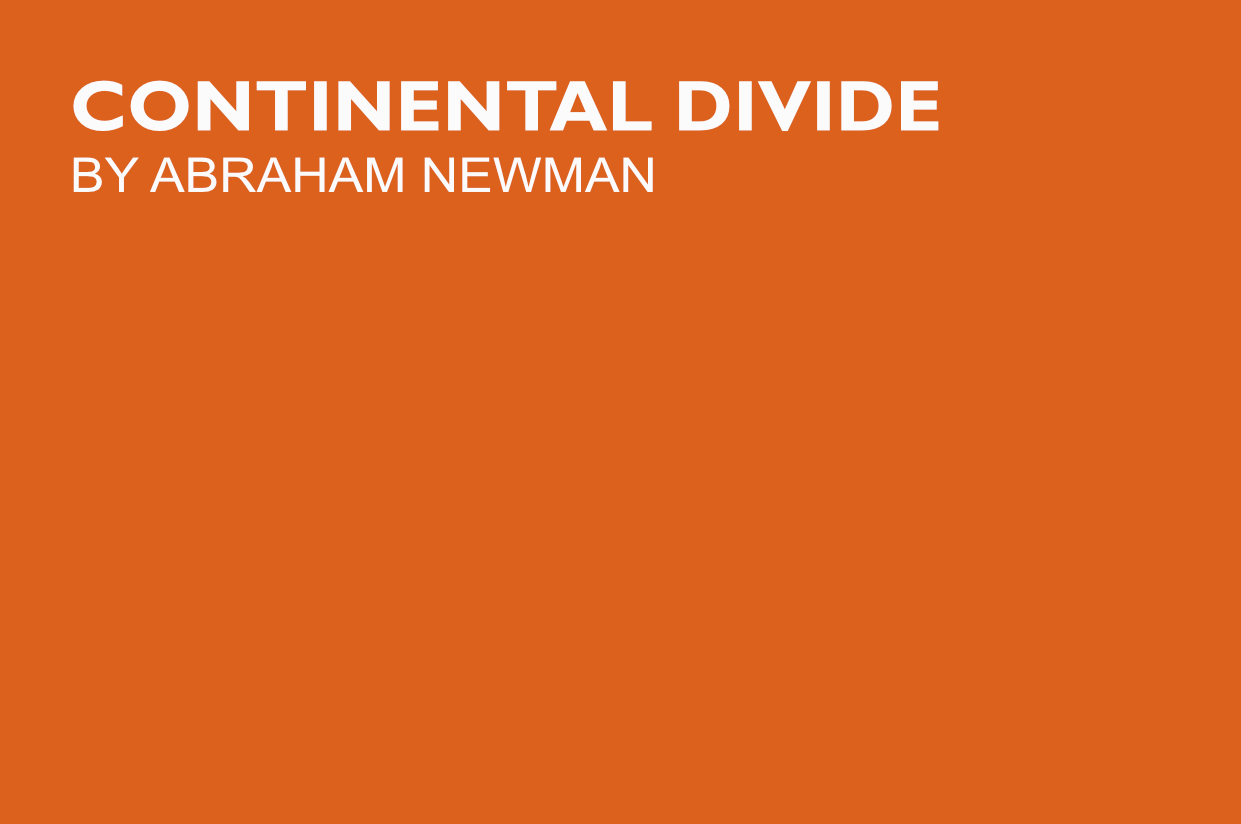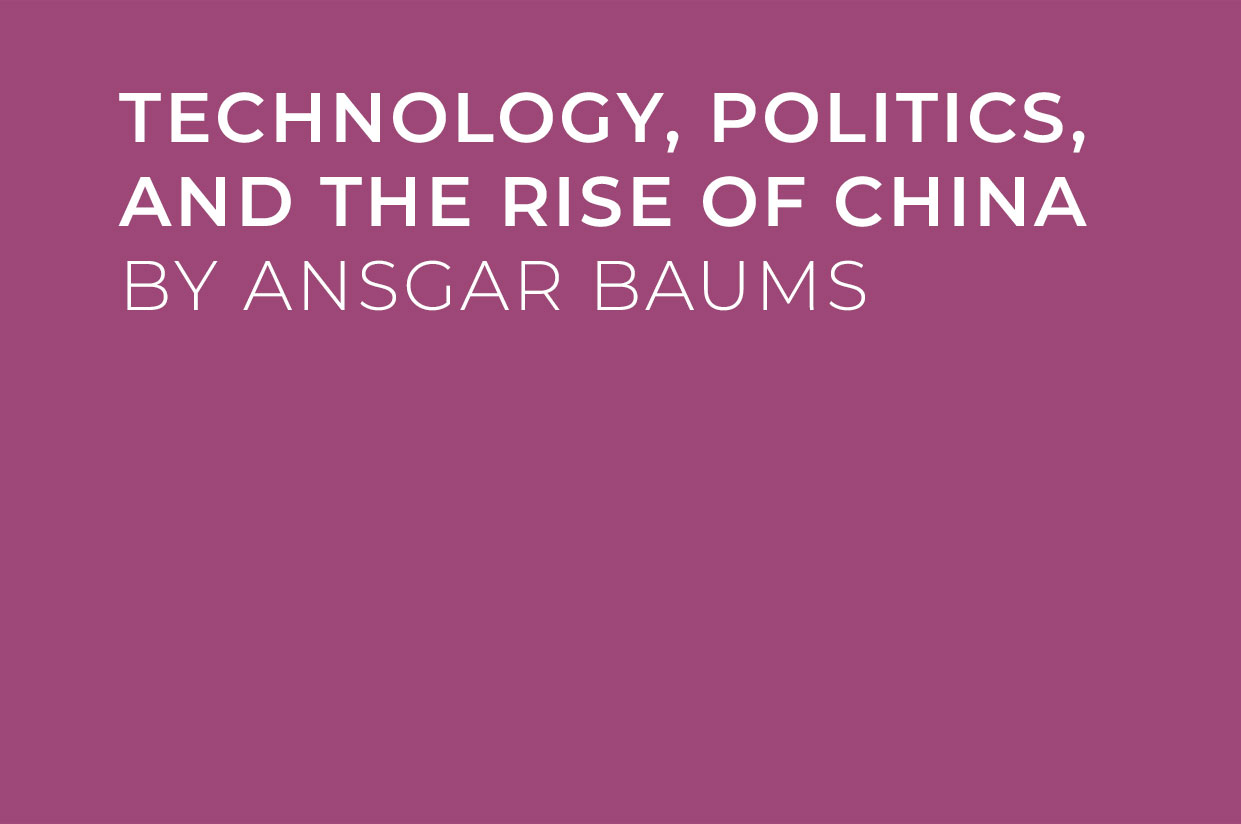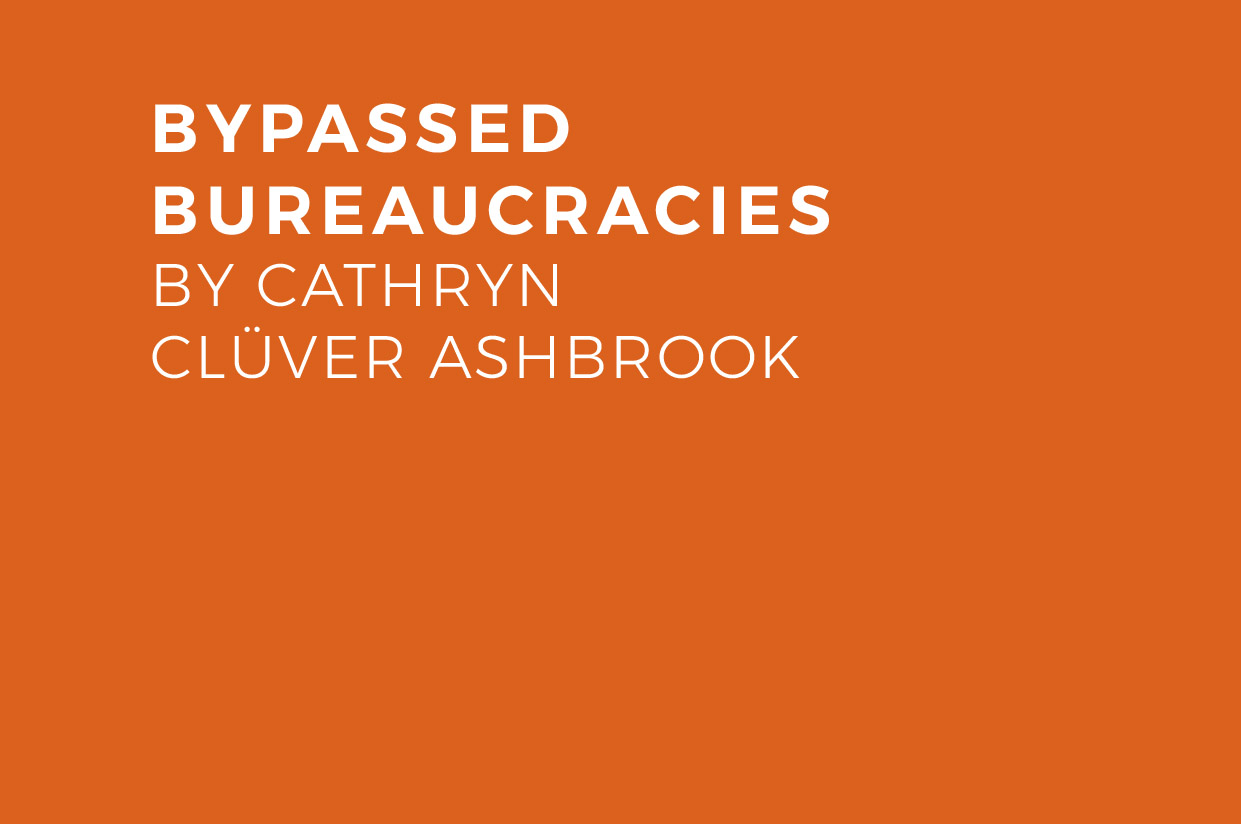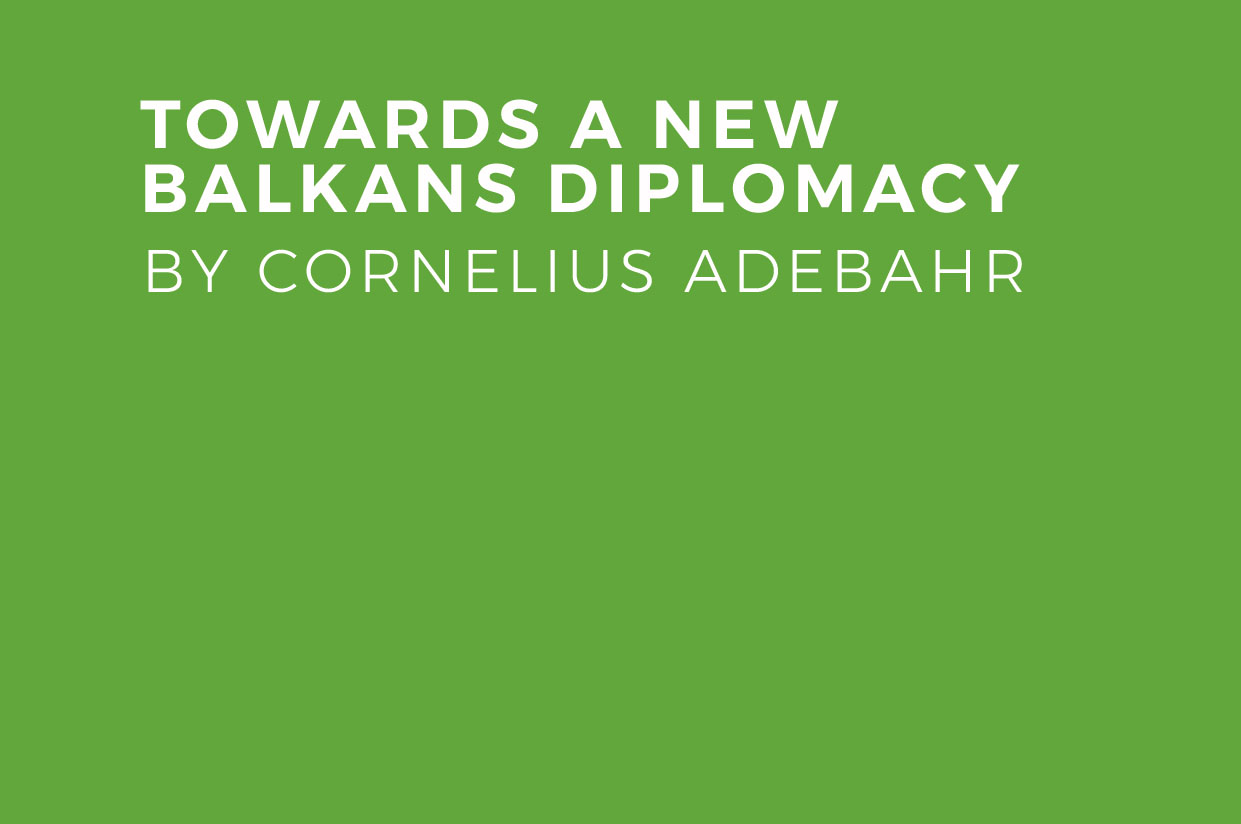
Towards a New Balkans Diplomacy
Bringing the citizens in
By Cornelius Adebahr
The term “Balkans Diplomacy” brings up memories of the 1990s, when former Yugoslavia violently disintegrated, and hundreds of thousands of people died or fled their devastated homes. To the more historically minded, it harks back to earlier periods, when the Balkans appeared to be the chess board of the great powers at the time, be it in the late nineteenth century or in the run-up to World War I.
These days, the region again appears to be on the brink, if less of an outbreak of cross-border violence. Instead, social collapse through political and economic stalemate is the most acute threat. Yet if this were to happen, it would have a much more direct impact on the European Union (EU) than the wars of Yugoslav succession had, when both the union itself and its relations with the region were much less integrated.
Whereas the EU in the 1990s “only” had to accommodate the refugees while trying to solve the conflict through diplomatic and (limited) military means, a major crisis today would concern the EU at its core: Croatia is a member state; Serbia is whatever closest one gets to a regional anchor; Montenegro is the accession country most advanced in its enlargement negotiations; Macedonia’s malaise is partly of the EU’s making (i.e. the latter’s inability to resolve the “name issue” raised by Greece); and Bosnia-Herzegovina and Kosovo have seen some form of EU-led administration over the past 10 to 15 years. If you consider that the EU is the region’s most important trading partner, accounting for over three quarters of total trade, and that five of the six countries have visa-free travel arrangements with the EU (all bar Kosovo), it becomes obvious that Brussels cannot easily disentangle itself from a regional conflagration.
Besides, a serious setback of a candidate country at a time when an actual member state is about to leave the club altogether would not only be of symbolic importance. By further devaluing the allure of enlargement, once dubbed “the EU’s most successful foreign policy,” such an event would reveal a strategic dilemma of the EU’s external action more broadly. Because if the EU’s diplomacy is built on providing incentives rather than threats, what could it offer if even the “golden carrot” of membership doesn’t do the trick?
That is why new initiatives to help the Western Balkans further advance towards its European destination are badly needed not only for the sake of the region, but also for the EU to prove its foreign policy credentials. Two elements are crucial in this regard, each widening the current approach.
First, there should be close US–EU coordination, though this would be different from the “good old diplomacy” of the time of the Dayton agreement. Back then, a concerted transatlantic effort—enlisting the acquiescence, if not support, of an enfeebled Russia—led both a military campaign and a diplomatic impetus “to end a war” (in the terms of US lead-negotiator Richard Holbrooke’s famous account of his task). Today, the challenge is not war, but state-building in societies whose main actors more often than not are war criminals and crooks rather than responsible politicians.
Today, the challenge is not war, but state-building in societies whose main actors more often than not are war criminals and crooks rather than responsible politicians.
Hence the new initiative also needs to differ from the post-2003 “EU-only” approach, in which Brussels shaped much of the Western Balkans perspective through the enlargement paradigm. Leaving the transformation of entire societies to technical processes negotiated between European officials and ruthless local politicians has not brought the countries much forward. Yet the EU cannot abandon the integration paradigm altogether and revert to traditional means of foreign policy in its approach to the region. This is the part that the United States could and should play, i.e. to strengthen the EU’s integrationist approach through its own bilateral, but coordinated, policies.
Second, the next phase should focus on empowering citizens so that they can hold their representatives to account. Located somewhere between the diplomatic and the technocratic, it has to embrace the heart of politics: With the EU in the lead but with strong support from Washington, a “new Balkans diplomacy” has to focus on how the societies of the Western Balkans can better rule themselves rather than being subjected either to strongmen or outside powers. It’s time to bring the citizens in.
From Dayton to Thessaloniki and Beyond
The storyline was compelling: From conflict resolution and reconstruction to stabilization and association to the eventual integration into the EU, all countries of the Western Balkans (which comprise the successor states of former Yugoslavia minus Slovenia plus Albania) should make their way from states born from violence towards stable European democracies. And for most of the 2000s, it seemed to work. With the terror attacks of 9/11 and the subsequent invasion of Iraq, the United States focused on what it called the “greater Middle East” and the Europeans were happy to take over the ground work of transforming the countries to which it promised a “European perspective” (in the form of eventual EU membership) at a summit meeting in Thessaloniki in 2003.
Even though the Dayton agreement of 1995, which ended the war in Bosnia-Herzegovina through a mixture of humanitarian intervention and diplomacy backed by force, was a peace deal rather than a panacea, it provided hope for whole region. It created a multi-ethnic state and committed the world powers to its survival, both in a literal sense and in its effective functioning. Yet it also de facto ratified the country’s ethnic division (brought about through “cleansing” by force) with the creation of a Bosnian-Serb (Orthodox) entity, the Republika Srpska, and another entity shared by Muslim Bosniaks and Catholic Croats (the Federation). If Dayton was meant to end ethnic strife, it has also contributed to making ethnic identity even more pronounced.
Even though the Dayton agreement of 1995, which ended the war in Bosnia-Herzegovina through a mixture of humanitarian intervention and diplomacy backed by force, was a peace deal rather than a panacea, it provided hope for whole region.
Dayton has also contributed to the country’s current stalemate by making institutional changes near-impossible. Though never intended to be a permanent constitution, this is what the peace treaty has become. A number of serious attempts at constitutional reform have failed, not least because of the high number of veto players. Ultimately, the Dayton arrangement has prevented ownership in the region: it has allowed local politicians to blame the international civilian mandate for any lack of progress they themselves should have to account for. Worse, the leaders of three “constitutional peoples”—Bosniaks, Croats, and Serbs—have set up a quasi-cartel that mainly serves their personal or their group’s interests, not the wider public.
A similar challenge exists for Kosovo, which violently separated from then-Yugoslavia in the war of 1990-99 before declaring independence in 2008, after being administered for nearly a decade by the United Nations (UN). However, its international status is compounded by the fact that five EU member states—Cyprus, Greece, Romania, Slovakia, and Spain, each with a separatist or minority issue itself—have not recognized its independence (being part of a wider group of 82 out of 193 UN member states in the same position). Macedonia, the country that escaped all-out war thanks to the swift intervention by both the EU and the United States when violence erupted in 2001, is marred by political corruption as much as by continuing ethnic divisions between its majority Slavic and minority Albanian population.
Moving on from Dayton, which prevented worse but also froze the region in its postwar state, unable to build self-sustaining peace, the EU’s Thessaloniki Declaration of 2003 was meant to provide a pathway for political and economic development. Following the example of the eight Central and Eastern European states that emerged from communism in 1989 and joined the EU fifteen years later, the countries of the Western Balkans were expected to similarly and thoroughly transform their societies in order to also become members of the club. The joint EU-Western Balkans summit envisaged the entire region as a future part of the union.
Between the enthusiasm of the time and the declaration of the then-newly nominated Commission president, Jean-Claude Juncker, in 2014, that there would be no further enlargement under his five-year watch, the EU and the Western Balkan countries have each had their disappointments. The defeat of the proposed Constitution for Europe in referenda in France and the Netherlands in 2005 led to a period of introspection among the then-25. The EU has since tried to reach out to its 500 million citizens, though without much success, as the recent wave of anti-European votes in some member states has shown. Add to this the financial crisis of 2008-09 and the Eurozone debt crisis of 2010-13, and it is obvious why the EU was preoccupied with getting its own house in order before admitting new members—even if (or, precisely because) the countries in the region were hit even harder by this twin crisis than the EU member states.
Yet even the erstwhile enlargement enthusiasm did not help a country like Macedonia that formally received candidate status in 2005 and for which the European Commission recommended the opening of negotiations in 2009. Because of the dispute with Greece about the country’s name (which Athens does not recognize, lest it could lead to claims to its northern province going by the same name), no further progress could be made. Instead, Skopje was politically backsliding until fairly recently, the blockade a convenient excuse. Even the fact that, in 2013, ten years after the Thessaloniki Declaration, Croatia joined the EU as the first of the war-torn former Yugoslav republics did not provide much optimism (Slovenia, which escaped the war in 1991 and joined the EU with the 2004 wave, has always been considered an outlier). Rather than serving as an encouragement to the region, as which EU leaders tried to portray it, it was seen as the last country slipping through a door being shut. In addition, Croatia’s member status now enables it to play both the benevolent advocate of the region’s eventual accession and the difficult partner blocking an accession country’s progress based on bilateral disputes.
With the 2015 migration crisis—the “Western Balkans route” on which refugees from the Middle East travelled to Central Europe becoming a household term, with German chancellor Angela Merkel warning of war as a result of these uncontrolled inflows of migrants—the stability-over-democracy paradigm, shed over a decade ago with Thessaloniki, returned to EU policymaking. This appears to be the default option for member states (and thus the EU as a whole) when they are faced with rising difficulties in partner countries. This has been the European reflex towards the Maghreb and Mashrek countries after the short-lived “Arab Spring” there, and it is again evident in the current enlargement policy.
As a consequence, there has been only very modest progress in over a decade’s time from the discourse of “unification of Europe” around the big bang enlargement to today’s mimicry of democracy in which one side pretends that it actually wants the Western Balkans countries to join, while the other side pretends that it is undertaking the necessary reforms. Today, the region lacks not only human and economic development, education, and jobs, but also governance and the rule of law.
Today, the region lacks not only human and economic development, education, and jobs, but also governance and the rule of law.
To substantively change course, Brussels would have to overcome its penchant for traditional government-to-government relations (which, despite the EU’s post-national DNA, is still the main operating method) and involve civil society in new ways. This is imperative also in the face of the EU’s interlocutors in the region: 15 years of accession perspective have not brought pluralism to those countries still mostly ruled by political networks established in times of war.
Washington, in contrast, should remain a committed supporting act even though its priorities have long shifted away from the region: its diplomatic expertise and muscle are both much needed, plus there is geopolitics at play. Over the past decade, Russia has strengthened its ties with Western Balkans countries through military (arms exports) as much as societal bonds (cultivated by the Orthodox Church), even while its economic investment remains low. A resurgent Turkey increasingly views itself as offering a different—Islamic-authoritarian—model than that of NATO-guaranteed democracy and the rule of law. Moreover, the region is awash with arms while some among its disillusioned young generation are open to radical Islamist ideology. It is thus also in the U.S. interest to maintain progress in this region that, more than once, has necessitated American military involvement.
Towards a New Balkans Diplomacy
Whether it’s an irony of history or not, 2019 marks a decisive year for EU membership—past, present, and future. One hundred years after the Paris Peace conferences ending World War I welcomed the newly created “Kingdom of Serbs, Croats, and Slovenes” as a participant, the EU will have to come up with a strategy for how to integrate the remaining ex-Yugoslav republics plus Albania—at the very time that the United Kingdom, a victorious power of both world wars, is about to leave the European politico-economic order that it helped shape for nearly half a century. With enthusiasm for further enlargement among its citizens low—not least because of the more recent members from Poland and Hungary to Romania and Bulgaria being seen in a critical light—the EU will have to prove that accession is still a credible incentive for prosperity and reform.
In economic terms, the Western Balkans are quasi-members of the single market, yet without enjoying its benefits such as structural funds. Such is the region’s dependence that three quarters of its trade are with the EU (most of it with Germany and Italy), the near entirety of its banking capital is held by EU-registered banks, and remittances from Western Europe make up about a quarter of Kosovo’s gross domestic product. Independent calculations have shown that for the Western Balkans to catch up with the EU in 30 years, the region would require annual growth of 6%. Given that this is unlikely, if not impossible, the region needs fresh capital, including through an increase in pre-accession aid.
Both the EU’s proposal to create a regional trade-zone as well as the—largely member state-driven—Berlin Process promoting economic investments therefore point in the right direction. Investing in infrastructure and building physical corridors through the region helps the countries to open up to one another and not just towards the EU. However, without the United States and a tangible progress in the more formal (and ultimately decisive) accession negotiations, these efforts are unlikely to turn the region around.
Today, the question is not of a “Dayton II,” a diplomatic push to overcome political deadlock in Bosnia-Herzegovina, but of a “Thessaloniki II” that provides the region with a realistic pathway to eventual membership. The challenge is not to cajole certain individuals into a “deal” but to devise a framework of political and societal development even if the ultimate reward—EU membership—is not really tangible.
Importantly, this new paradigm should be transatlantic in nature but with a strong European lead. Simply relying on the “carrot” of EU membership is not adequate when dealing with states captured by mafia gangs. It takes “sticks” such as visa bans and asset freezes, for which the United States is indispensable, to get those around. A quarter- century after the “hour of Europe” was first (and infamously) invoked, it is indeed time for the EU to propose a vision not only to its own disgruntled citizens but also to those of neighboring countries wishing to join.
It is indeed time for the EU to propose a vision not only to its own disgruntled citizens but also to those of neighboring countries wishing to join.
Once Europe has devised a solution, then it can come to the United States to join the effort. The latter is unlikely to come to the rescue by itself, not least because both the administration and Congress perceive the region as a European problem, disregarding the wider geopolitical context. At the same time, EU membership implies much more than the regime change Washington knows about: it means system change, requiring a high level of ambition that is hard to sustain over years or even decades. Instead of an all-or-nothing approach to membership, the EU should think of a “halfway house” that allows the countries of the region to feel the benefits of close EU association in the fields of trade, infrastructure, and circular migration but also internal security without having to be full members first. Such a flexible European solution also helps with the Americans who are unlikely to buy into a process led by Eurocrats unable to make adjustments to a fixed technical rulebook.
Rather than become the victims of one’s own language, in which “accession” can only be one thing, both Brussels and the countries from the region should develop a shared vision of a pathway to eventual membership that they could then flexibly implement. This necessitates a combination of political and economic tools plus robust instruments to strengthen the rule of law, including the fight against kleptocratic networks, which in turn requires strong transatlantic cooperation, including intelligence sharing and setting up structures outside the captured state (e.g. special prosecutors) to break the established systems of patronage.
Without such a push from the entire West—not just Brussels—the region will further fall behind, as its criminal leadership will not rush to endanger its rule by governing according to European standards. In fact, the region itself is more mainstream than many Europeans would dare admit. Its continuing travails are part of wider crisis of democracy throughout the West, from rising populism and nationalism in EU member states to secessionist tendencies in Catalonia and Scotland to racial and societal divisions in the United States. Like in those Western countries, there is increasing mistrust in political and social elites, which in the Balkans more often than not happen to be the ones who first fought the wars and then succeeded in clinging (or returning) to power in peace times.
Without such a push from the entire West—not just Brussels—the region will further fall behind, as its criminal leadership will not rush to endanger its rule by governing according to European standards.
What the Western Balkans need—and where European and American support is most crucial—is a new generation of leaders bringing a new mentality to policy-making. This is particularly urgent because something like a Brain Drain 2.0 has set in: those who helped rebuild their countries—whether in administration, business, or civil society, often with an education or work experience from abroad—are now at the point of giving up. They are frustrated not only with a lack of real progress but also (if not more so) with the EU’s collusion with the ruling classes. Thus, both Brussels and Washington owe it to this pro-Western elite to engage more forcefully, and more broadly, with the countries of the region.
The Power of People
In this sense, a “New Balkans Diplomacy” is not about a renewed push of old-style negotiations but about a new kind of diplomacy involving an expanded range of actors. It needs to bring together not just official representatives from member states and Brussels institutions, but also from civil society organizations as well as from European political parties and local or regional institutions. The goal is to mobilize a wide web of people-to-people relations to establish deep links between current and future EU members.
That said, this new initiative should not start from scratch but rather build on previous efforts of pacification and state-building. At the time of the Dayton negotiations, Richard Holbrooke identified three leverage points that the transatlantic partners commanded: The use of force (i.e. NATO’s air power), political incentives (i.e. the prospect of EU membership), and justice (i.e. the creation of the International Criminal Tribunal for former Yugoslavia, ICTY). What was appropriate at the time of ongoing fighting is of course different from what is needed today, yet the levers required are of a similar nature:
- Force: Instead of the military, it takes the collaboration of law enforcement and intelligence agencies to fight the kleptocratic networks that have captured the states in the region. Citizens’ exercise of their democratic rights becomes empty if the choice is limited to politicians that are not interested in the public good but in the pursuit of their criminal businesses. Ultimately, these people only pretend to lead their country into the EU but would never do so, as it would rid them of their power.
- Political incentives: Because the goal of membership is far ahead in time, the EU needs to find pre-stages to membership that offer tangible advantages for national politicians to “sell” to their electorates. Just like the prospect of visa-free travel enticed the countries in the region to comply with the Schengen Zone’s criteria for passport features and border controls, economic benefits—such as market access and financial support—should help them implement structural reforms at home and engage in regional integration (e.g. in infrastructure and energy).
- Justice: Today, justice is still needed, though not so much because the ICTY is likely to leave a mixed record of bringing war criminals to the book when it ceases to exist around 2018, nearly a quarter century after its creation. Instead, the challenge is to provide social justice to all citizens of Western Balkans countries, i.e. to overcome residual discrimination of minorities and, more generally, the widespread feeling of being second- or third-class Europeans.
If Richard Holbrooke was the right negotiator to clobber the heads of the Balkan warlords together to make them sign a peace treaty, the transatlantic partners now have to reach out beyond the leaders and directly engage the Western Balkans publics. Some of those strongmen may be easy partners, in particular if they understand how to sing the “European tune” or to exaggerate the danger of outside influence to provide legitimacy to their autocratic leadership. However, the EU’s stability-over-transformation approach risks downgrading democracy in the mid-term.
If Richard Holbrooke was the right negotiator to clobber the heads of the Balkan warlords together to make them sign a peace treaty, the transatlantic partners now have to reach out beyond the leaders and directly engage the Western Balkans publics.
More attention in EU capitals and Washington for the people, of course, comes with an obligation: citizens of the Western Balkans need to make their decision-makers behave in a more European way. In addition to being (somewhat, sometimes) pressured by their EU peers, leaders in the region have to feel the demands from own societies. Just as much as citizens in member states demand their voice to be heard, the EU – backed up by the United States—needs to take people’s efforts on the ground seriously.
Cornelius Adebahr is a nonresident fellow at Carnegie Europe. His research focuses broadly on European foreign policy, from integrating the Western Balkans into Euro-Atlantic structures to the European Union’s role in the negotiations over Iran’s nuclear program to the impact of the economic crisis on Europe’s global role. Since 2000, he has been the owner of a political consultancy in Berlin. His clients include major private foundations, such as the Robert Bosch Foundation and the BMW Foundation, as well as academic institutions and nonprofit associations, such as the Hertie School of Governance in Berlin and the European Policy Center in Brussels. Adebahr is also an associate fellow at the Research Institute of the German Council on Foreign Relations, where he consults on a project supporting think tanks in the Western Balkans that is funded by the German Foreign Office.

